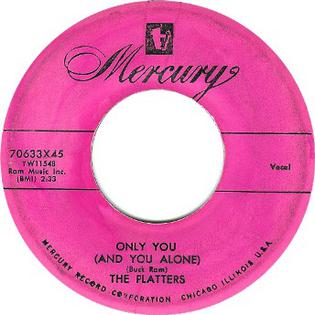
"Only You (And You Alone)" (often shortened to "Only You") is a pop song composed by Buck Ram. It was originally recorded by The Platters with lead vocals by Tony Williams in 1955.
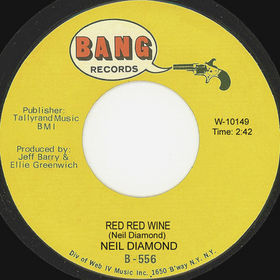
"Red Red Wine" is a song originally written, performed and recorded by American singer Neil Diamond in 1967 that appears on his second studio album, Just for You. The lyrics are written from the perspective of a person who finds that drinking red wine is the only way to forget his woes.
"I Really Don't Want to Know" is a popular song written by Don Robertson (music) Howard Barnes (lyrics). The song was published in 1953.
"Almost Persuaded" is a song written by Glenn Sutton and Epic Records producer Billy Sherrill and first recorded by David Houston in 1966. It is not to be confused with the Christian hymn of the same name.
"Mountain of Love" is a song written by Harold Dorman. Dorman released his version as a single in 1960. It was originally recorded in late 1959 at the Royal Recording Studios in Memphis before the backing vocals were overdubbed. It performed well, spending 19 weeks on the Billboard Hot 100 chart, peaking at No. 21 in May 1960, while reaching No. 7 on the Billboard Hot R&B Sides chart, and No. 25 on Canada's "CHUM Hit Parade". The song was his only top forty hit on the Billboard Hot 100 and was the highest-charting single of his career.
"It's All in the Game" is a pop song whose most successful version was recorded by Tommy Edwards in 1958. Carl Sigman composed the lyrics in 1951 to a wordless 1911 composition titled "Melody in A Major", written by Charles G. Dawes, who was later Vice President of the United States under Calvin Coolidge. It is the only No. 1 single in the U.S. to have been co-written by a U.S. Vice President or a Nobel Peace Prize laureate.

"She's Got You" is a country song written by Hank Cochran and first recorded and released as a single by Patsy Cline. Musically the song is an upbeat jazz-pop song with country overtones to support it.

"Satin Sheets" is a song written by John Volinkaty, and originally recorded by Bill Anderson and Jan Howard on their March 1972 duet album, Bill & Jan or . It was then famously covered by American country music artist Jeanne Pruett in February 1973 as the first single and title track from her album of the same name. The song was Pruett's only Number One country hit, as well as her only chart entry on the Billboard Hot 100.
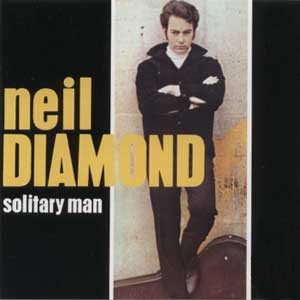
"Solitary Man" is a song written and recorded by American musician Neil Diamond, who himself initially recorded the song for BANG Records in late January 1966. It has since been covered many times by such artists as Billy Joe Royal, B.J. Thomas, Jay and the Americans, T. G. Sheppard, Gianni Morandi, The Sidewinders, Chris Isaak, Johnny Cash, Johnny Rivers, HIM, Crooked Fingers, Cliff Richard, Ólöf Arnalds, Theuns Jordaan and Farhad Mehrad.
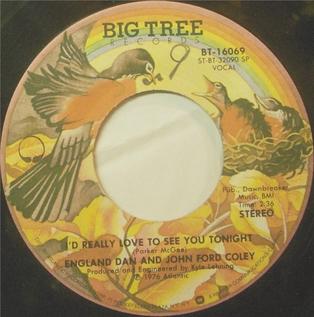
"I'd Really Love to See You Tonight" is a song written by Parker McGee and recorded by England Dan & John Ford Coley from their 1976 album Nights Are Forever. It eventually peaked at No. 2 on the Billboard Hot 100 chart for two weeks, behind Wild Cherry's "Play That Funky Music" and No. 1 on the Easy Listening chart. Billboard ranked it as the No. 21 song for 1976. It also reached No. 26 on the UK Singles Chart.
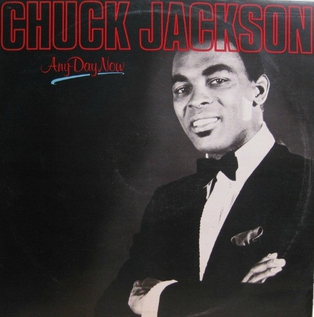
"Any Day Now" is a popular song written by Burt Bacharach and Bob Hilliard in 1962. It has been recorded by numerous artists over the years, including notable versions by Chuck Jackson in 1962, Alan Price in 1965, Elvis Presley in 1969, Scott Walker in 1973 and Ronnie Milsap in 1982. In the lyrics, the singer predicts the imminent demise of a romantic relationship and describes the sadness this will leave.

"Behind Closed Doors" is a country song written by Kenny O'Dell. It was first recorded by Charlie Rich for his 1973 album Behind Closed Doors. The single was Rich's first No.1 hit on the country charts, spent 20 weeks on this chart, and was also a crossover hit on the pop charts. It was certified Platinum by the RIAA for U. S. sales in excess of two million copies. Background vocals were provided by The Nashville Edition.
"Please Help Me, I'm Falling" is a 1960 song written by Don Robertson and Hal Blair and first recorded by Hank Locklin. The single was Locklin's most successful recording and was his second number one on the country charts. "Please Help Me, I'm Falling" spent 14 weeks at the top spot and spent nine months on the country chart and crossed over to the Hot 100 peaking at number eight.
"Last Date" is a 1960 instrumental written and performed by Floyd Cramer. It exemplifies the "slip note" style of piano playing that Cramer made popular. It peaked at number 11 on the country chart and at number two on the Hot 100 behind "Are You Lonesome Tonight?" by Elvis Presley. Cramer's recording inspired a number of successful cover versions, including a vocal adaptation by Conway Twitty.
"Love in the Hot Afternoon" is a song written by Vince Matthews and Kent Westbury, and recorded by American country music artist Gene Watson. It was released in May 1975 as the second single and title track from the album Love in the Hot Afternoon. The song reached No. 3 on the Billboard Hot Country Singles chart, becoming his first top 40 and first top 10 hit on that chart. Two years later, American contralto pop music singer Vicki Lawrence released her female version of this song with the gender reversed as a promotional single on Private Stock Records.
"I Love You Because" is a song written and recorded by country music singer and songwriter Leon Payne in 1949. The song has been covered by several artists throughout the years, including hit cover versions by Al Martino in 1963 and Jim Reeves in 1964.

"Sea of Heartbreak" is a song written by Paul Hampton and Hal David and recorded by Don Gibson in 1961. The song reached #2 on the Billboard Hot Country Singles & Tracks chart.

"Never Ending Song of Love" is a song written by Delaney Bramlett, and, according to some sources, by his wife Bonnie Bramlett. It was originally recorded with their band, Delaney & Bonnie & Friends, in 1971 on the album Motel Shot. Released as a single by Atco Records the same year, "Never Ending Song of Love" became Delaney & Bonnie's greatest hit on the pop charts, reaching a peak of No. 13 on the Billboard Hot 100 and No. 8 on Easy Listening. It reached No. 16 in Australia.

"I Can't Help It (If I'm Still in Love with You)" is a song written and originally recorded by Hank Williams on MGM Records. It hit number two on the Billboard country singles chart in 1951. In his autobiography, George Jones printed the first six lines of the song and stated, "Its lyrics couldn't be more simple - or profound."
"No Love at All" is a song written by Johnny Christopher and Wayne C. Thompson. It was recorded by American country music artist Lynn Anderson and released as a single in June 1970 via Columbia Records.











